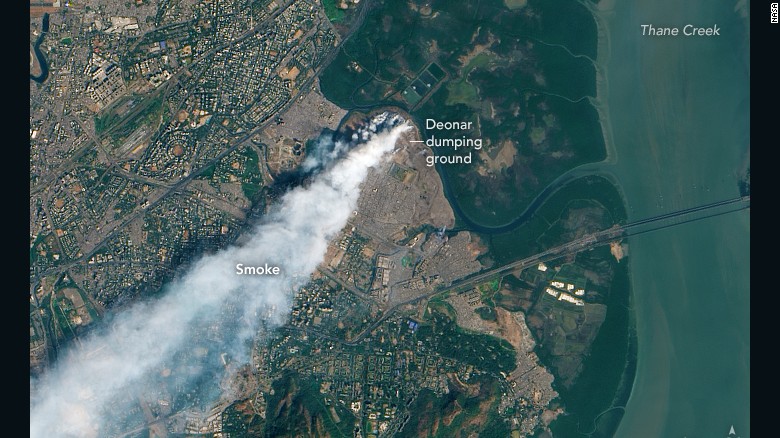
Beirut, Lebanon (CNN) A river of stinking garbage bags snakes its way through the suburbs of Beirut, a surreal and unhygienic blight on Lebanon’s cosmopolitan capital.
This overflowing landfill, stretching for hundreds of meters through Jdeideh in the city’s suburbs, is the consequence of the city’s months-long garbage crisis — both a symbol and a byproduct of the country’s dysfunctional politics.
This used to be such a beautiful place, but look at it now. We can’t even walk by it," Jawanah, a local resident who didn’t want to give the rest of her name, told CNN.
Problems began when authorities shut the main landfill site for Beirut’s garbage in July, but failed to provide an alternative site for dumping refuse.
The trash started to mount up, choking the city’s streets and sparking violent protests that brought a deployment of the army.
The "trash river" in Jdeideh began four months ago when a makeshift dump began in a yard near residential buildings, and has grown since then as the garbage crisis went unresolved, local officials said.
Aside from the stench and unsightliness of the garbage, locals are worried about the health threats posed by this toxic eyesore. There are fears that rains are flushing toxins into the water table — and concerns about how much worse the problem will become in the heat of the coming summer months.
It appeared that a solution was finally in sight when a British firm was contracted to export the waste to Russia. But the plan fell through on Friday when the company failed to submit paperwork by an agreed deadline that showed Russia would accept the garbage, a spokeswoman for Lebanon’s Council for Development and Reconstruction (CDR) told CNN.
CDR spokeswoman Mona Kalot said there was no backup plan in place.
"We don’t have a solution, but they’re working on something else," she said.
"I don’t think it will be transferring (the trash) outside Lebanon."
Lebanon’s trash crisis is but one among many problems blamed on the country’s stagnating political situation.
The country operates under a political system known as "confessional democracy," in which political and institutional power must be distributed proportionally among its diverse religious communities.
Deadlock caused by infighting between parliament’s different factions has left lawmakers unable to choose a new president since May 2014, and the country also grapples with deteriorating water and electricity systems and accusations of corruption. Meanwhile, this small country is also struggling under the burden of more than a million refugees fleeing the war in neighboring Syria.
READ: Everest suffers from tons of trash
The garbage crisis gave rise to a popular protest movement in August calling itself "You Stink" — a moniker directed as much at the country’s political class as it was toward the garbage on the streets.



